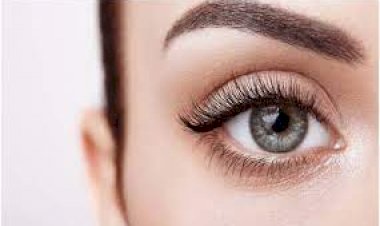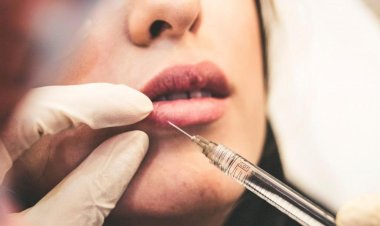DOES SLEEP DISORDER AFFECTE DAILY ROUTINE?
Even after a hard day, your body requires enough sleep. Normally, adults require 7 hours of sleep each night.

Even after a hard day, your body requires enough sleep. Normally, adults require 7 hours of sleep each night. What happens when you are often tired or sleep less than seven hours each night? The results are clear. It has been proven that sleep deprivation can lead to increased risks of various diseases, such as type 2 diabetes, obesity, cognitive impairment, and heart disease. It's important to note that sleeping less than 7 hours a night can lead to serious health problems.
Health Problems from Lack of Sleep
Sleep is a way to bring back energy for your daily activities. Adults should aim to sleep between 7 and 9 hours each night. People who sleep less than 7 hours a day are not rare. It should not be underestimated. The danger of frequent sleep durations below 7 hours is real.
The risk of becoming overweight or obese is one of the consequences. Leptin is released automatically when your body is tired or stays awake late. This hormone is responsible in stimulating energy and suppressing appetite. You may also experience an increase in appetite if you don’t get enough night sleep.
A person who sleeps less than 7 hours a night is at higher risk for type 2 diabetes. The reason is that during sleep there's a regulation process of glucose, metabolism, and other functions. This regulation process will be disrupted if there is a lack of sleep. A lack of sleep can cause an increase or decrease in cortisol and make it more difficult to use insulin.
Insufficient sleep can cause a disruption in the immune systems, which can lead to other health problems. People who don't sleep for more than 7 hours a day have trouble with their immune system. You may be more likely to get sick, but it can also make it harder to recover.
Most people will experience sleep issues or lack of sleep because they are stressed, such as from work. You may not realize that lack of sleep can make it worse. People who get less sleep are more likely than others to develop mental health problems. People who lack sleep may also experience a lack of focus, fatigue, anger, and tiredness. Lack of sleep can lead to mental problems.
The most common types and symptoms of sleep disorders are listed below
- Insomnia
Insomnia occurs when someone is unable or unwilling to go to sleep. This can be caused by jet lag, stress, other conditions, medications or the number you have drunk of coffee.
- Sleep Apnea
Sleep apnea (or sleep apnea) is a common disorder in which your breathing stops temporarily while you are asleep and wakes you up. This condition may be difficult to remember. You may feel more tired and stressed during the day, as well as feeling less productive.
- Restless legs syndrome
Restless legs syndrome (RLS), a condition where your body is constantly compelled to move your legs, arms or legs at night, is called restless legs syndrome. The urge to move can occur when you are sleeping or lying down. The root cause of the urge to move is typically discomfort, a tingling sensation and/or pain.
- Narcolepsy
Narcolepsy is a condition that causes excessive sleepiness and cannot be controlled on a daily basis. This is caused when the brain functions that regulate sleep and wakefulness are impaired. This disorder can lead to "sleep attacks", which can occur when you are walking, working or driving.
There's many reasons that you may have trouble sleeping.
- Poor habits before bed like smoking, drinking, or staying up too much.
- Mental illness like depression and anxiety diseases.
- Chronic diseases that impact sleep such as asthma, joint pain, joint pain, or digestive disorders that cause ulcer symptoms.
- Consumption drugs that contain antidepressants or stimulants which interfere with the hormone Melatonin, such as caffeine.
The elderly often experience insomnia due to other factors, such as their genetics, nightshifts, medications, or increasing age.
Many risk factors can cause sleep disorders.
- Obesity.
- Enlargement of the tissues within the nose, mouth, or neck.
- Bone deformity.
- Consumption or use of drugs or alcohol.
- Do not smoke.
Bad sleeping habits
- Disorders of the hormonal system (endocrine)
- Genetics from parents such as fatal familial sleeplessness
- Complications of Sleep Disorders
Sleep disturbances can lead you to not getting enough sleep.
- Declined brain function, such a poor ability to think clearly or memory, difficulty processing information, solving difficult problems, and making decision.
- An irritable mood that causes conflict between you or your loved ones.
Your immune system will weaken, making it easier to get sick.
- Hypertension and heart disease are two of the most common chronic diseases.
- Reduced sexual function leads to deterioration of relationships between partners.
Diagnosis and treatment for sleep disorders
The doctor will first conduct an examination of your body and collect information about any symptoms or medical history. The doctor will order various tests, including:
Polysomnography - A sleep study that examines oxygen levels, body movements, and brain waves in order to identify how they impact sleep.
Electroencephalogram test assesses the electrical exertion in the brain and detects any implicit problems associated with this exertion.
Genetic blood tests (also known as blood tests): These tests can be used to diagnose sleep disorders and other health conditions.
What are the stylish ways to treat sleep diseases?
According to Cleveland Clinic, treatment depends on the underlying cause.
- Take medication to aid sleep such as Modalert (amongst them Modalert200) or Modvigil, (amongst others Modvigil 200). You can buy Modalert in various online drugstores and pharmacies.
Cognitive behavioural therapy is a treatment for anxiety and insomnia.
- Light therapy is recommended to improve the circadian rhythm in order to get better sleep.
Using a CPAP, or continuous positive airway pressure (continuous positive pressure), machine to treat sleep apnea.
Treatment of sleeping disorders at home
Change your daily habits
No matter what kind of disorder you are having, it is important that you maintain a consistent schedule for sleep, do regular exercise, and reduce your consumption of alcohol, caffeine, and nicotine. Management of stress can help improve long-term sleeping quality.
Make a bedtime routine that is relaxing
Engage in activities that prepare your mind and body for sleep Your bedroom must be dark, quiet, and distant. Avoid eating too much or drinking too late at night.
Before going to bed, you may take a warm shower, read, or listen music. It is important to switch off your smartphone at the least one hour before you go bed.
If you wake at night, go to sleep
You can wake up at night regardless of your sleep disorder. If you are having trouble falling asleep, try meditating, breathing exercises, and relaxation techniques.
It is possible to use drugs to overcome this disorder. Modalert (among others Modalert200) or Modvigil, (among many Modvigil200) are just a few examples. Purchase Modalert that we can find at various websites or pharmacies






































